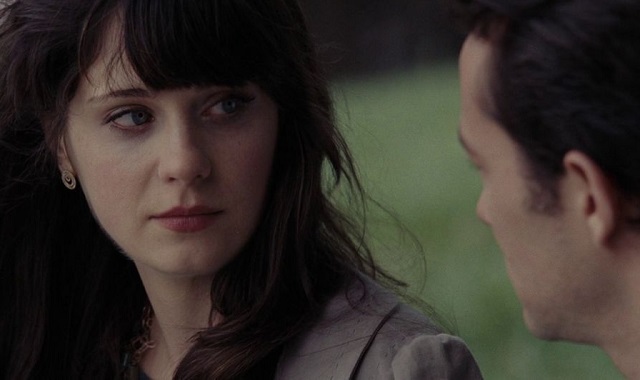
We know that you can’t build a relationship solely on passion.
Does that mean that it has to be one or the other? That there’s only long-term relationships with little passion or short-term relationships with nothing but?
There is a middle ground. We can have both.
That’s hard for our culture to understand sometimes, since so many of us want to simplify things. We want everything to be binary: right or wrong. Black or white. Passion or comfort.
Esther Perel encapsulates the problem in her book, Mating in Captivity:
“Romantics value intensity over stability. Realists value security over passion. But both are often disappointed, for few people can live happily at either extreme.”
Therein lies the issue—neither is happy. It always feels like you have to give up one for the other. Why can’t we have both?
There’s different ways to accomplish that, but one thing is for sure—it doesn’t come naturally.
Long-term relationships past five to seven years aren’t biologically natural, but that doesn’t mean they’re not possible. Long-term relationships can actually be one of the most fulfilling things in our lives.
Sustaining this kind of a relationship takes emotional intelligence from both sides. Something we rarely seek to improve.
When we start dating someone new, everything is passionate and it feels amazing. Love grabs us and we feel powerful. It feels like we’re on the best kind of drug. We then become more attached and start feeling like we have something to lose. We try to make it more secure because we’re uncomfortable with the uncertainty. We make commitments, call each other boyfriend and girlfriend, and eventually get married. All of these things secure the relationship in our eyes.
The irony is that trying to control the risks associated with passion squanders its existence. Trying to control everything in order to create certainty fosters boredom. Spontaneity dies, and passion goes along with it.
Passion thrives on uncertainty, the unpredictable. That’s what passion is.
Think of the most passionate points in your life. They were likely times when things were far from certain—there was unpredictability.
That’s why breakup sex or makeup sex is so hot. It’s more passionate than it was during the relationship because the unpredictability is back, albeit briefly. That’s one of the reasons emotionally unhealthy couples make up and break up so much, it gives them back that passion they’ve been missing—that unpredictability that they crave.
How do we change this? How do we foster passion in a healthy way?
We don’t need “10 tips to create more passion” or anything like that. There are millions of posts that give us quick tips to “fix” our problems. Passion isn’t a quick fix. Most of these tips that we’ve been fed so many times are nothing more than band-aids.
Here are a few great tips that don’t involve the bedroom:
>> Try new activities together.
>> Go on vacations with just the two of you.
>> Give more space to each other.
>> Prioritize passion in your relationship.
>> Go on vacations with just the two of you.
>> Give more space to each other.
>> Prioritize passion in your relationship.
I’m sure you can think some more typical ones we might see in a monthly subscription to “Cosmopolitan” or “Men’s Health.” These are often surface level and rarely dig deeper into the psychology and mindset changes that might be required of us.
We have to look at ourselves individually first. What mindsets do we need to shift?
Embrace Uncertainty.
As much as we like to think of ourselves as spontaneous, most of us value routine and comfort more than we care to admit.
Tony Robbins said it best:
“Passion in a relationship is commensurate with the amount of uncertainty you can tolerate.”
One thing is certain, zero uncertainty is bad for any relationship. Zero uncertainty = zero passion. The amount of uncertainty that you can handle will depend on you and your partner.
If your tolerance is high, there will be a lot of passion, but sometimes it will feel more uncomfortable because of the uncertainty. If your tolerance is lower, the amount of passion will be less, but you’ll feel more secure and comfortable. It’s give and take.
Be self-aware.
You need to figure out how high or low your tolerance for uncertainty is, as well as your partner’s. This is why self-awareness and emotional intelligence are crucial qualities to possess prior to entering into a relationship. If you don’t understand or can’t communicate on an emotional level with your partner, it will be very hard to stay in that ideal zone where there’s passion while you also feel secure in the relationship.
Realize that our partner is never “ours.”
If we can realize that this permanence we think we have is an illusion, then we can be more accepting of the uncertainty that we need for passion to thrive in our relationship.
Many times in a relationship we get comfortable because we think we “have” our partner. We put in all this effort while dating them, but once the chase is over, we become complacent. We hold the illusion that we don’t need to do anything anymore because our partner is “ours” now. If this is the way we think—is it really a shock that passion disappears?
It’s important to know that all these thoughts are just in our head. We never really “have” our partner. They could leave any day. There is no guarantee. And this is a good thing.
Realizing and living this way will ensure we don’t take what we have for granted. We have to choose our partner every day, just like they need to continue to choose us.
We can always learn more about our partner.
When I spoke to a few married couples that had been together 30+ years, they each said that they were still regularly surprised by their partner. This means we never completely know our partner.
Learning, loving, and appreciating our partner should happen every day.
Embracing masculine and feminine polarity.
The big X factor for passion is that each partner embraces their core masculine or feminine energy in the relationship. Partners are meant to be each other’s yin and yang—complementary. This means we have to embrace each other’s differences too. Get to know the places and ways in which your partner gains their energy.
Differences also exist in the way we communicate. Generally speaking, when a man hears a problem, he goes into fixer mode naturally. He wants to find a solution and move on. A woman on the other hand doesn’t always need a solution. More often she wants to feel empathy from her partner. She wants to feel the emotions.
It’s important that we don’t try to change each other to be more like ourselves, but that we appreciate and embrace the differences that exist. These differences are what attracted us to each other initially, so why would we try and change that?
The answer is, we shouldn’t.
It’s hard to find someone you want to be with for your entire life—and even harder to have it be a passionate, happy, and fulfilling long-term relationship. It’s not easy, but no one said that it should be.
Like most things in life that are hard, a passionate and loving relationship is worth it.
~
Author: Greg Bekkers
Image: Flickr/TGermeau
Image: Flickr/TGermeau

No comments:
Post a Comment